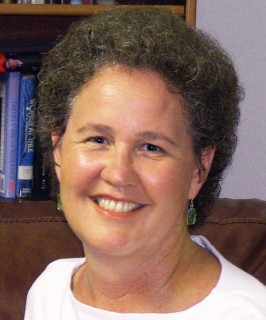A beginner’s guide to Professor Linda Darling-Hammond
Where does she work?
Darling-Hammond is currently the Charles E Ducommun professor of education at the Stanford Graduate School of Education, and president and CEO of the Learning Policy Institute. She began her career as a public school teacher in Pennsylvania, and has since gone on to become president of the American Educational Research Association and a member of the National Board for Professional Teaching Standards. She gained her Ed.D. in urban education from Temple University in 1978.
What is she best known for?
In 2008, Darling-Hammond was tipped as one of the most likely candidates for Secretary of Education in the new Obama administration. Although this never came to pass, it is testament to her work in education policy that her name was linked to the role. Darling-Hammond has long been involved in efforts to redesign America's schools, leading the effort to implement set standards for new teachers and overseeing the development of New York State's learning standards, curriculum frameworks, and assessments during the early 1990s.
What's it all about?
Darling-Hammond's policy and research work has often focused around reforming learning standards and curriculum frameworks, with an added emphasis on learning goals and the introduction of more performance-oriented assessments. One of her main early focuses was on how to improve teacher assessment, with more emphasis on actual teaching practice rather than bureaucracy. She was instrumental in the development of new performance assessments for teachers, allowing them to demonstrate their teaching skills when applied in the classroom, rather than as an abstract assessment.
What does she research?
Darling-Hammond's research has often been informed by working with schools and districts around America. Her recent work with the School Redesign Network at Stanford University involves a network of urban districts looking to redesign schools and district offices. She has called out the American education system for lagging behind its international peers in educational outcomes and achievement gaps for disadvantaged pupils, and has advocated a change in American national policy that would see more federal spending on education in order to achieve greater parity of experience across America's schools.
What she says:
"Bureaucratic solutions to problems of practice will always fail because effective teaching is not routine, students are not passive, and questions of practice are not simple, predictable, or standardised. Consequently, instructional decisions cannot be formulated on high then packaged and handed down to teachers."
What others say:
Back in 2006, Education Week named Darling-Hammond as one of America's 10 most influential people affecting education policy. She has received honorary doctorates from seven universities in the United States and abroad as well as numerous awards for her work over the course of her career. During her time as executive director of the National Commission on Teaching and America's Future, the commission's lead report, What Matters Most: Teaching for America's Future was credited as one of the most influential research studies affecting American education.
Why you should consider reading more:
Darling-Hammond's work has had a considerable impact in the USA, and her latest book explores best-practice educational systems across the globe and how their example can be used to inform policies that ensure quality teaching in all communities. Her work may interest policy makers, school leaders and anyone interested in different education systems. The Education Week 2013 RHSU Edu-Scholar Public Presence rankings – designed 'to recognize those university-based academics who are contributing most substantially to public debates about K-12 and higher education' – placed Darling-Hammond in the top spot.
Top reads:
Inspired by evidence-based practice? Check out EdResearch, our searchable library of education research and follow @EdCentral on Twitter for all our latest updates.
Related Posts
Comments
By accepting you will be accessing a service provided by a third-party external to https://edcentral.uk/

